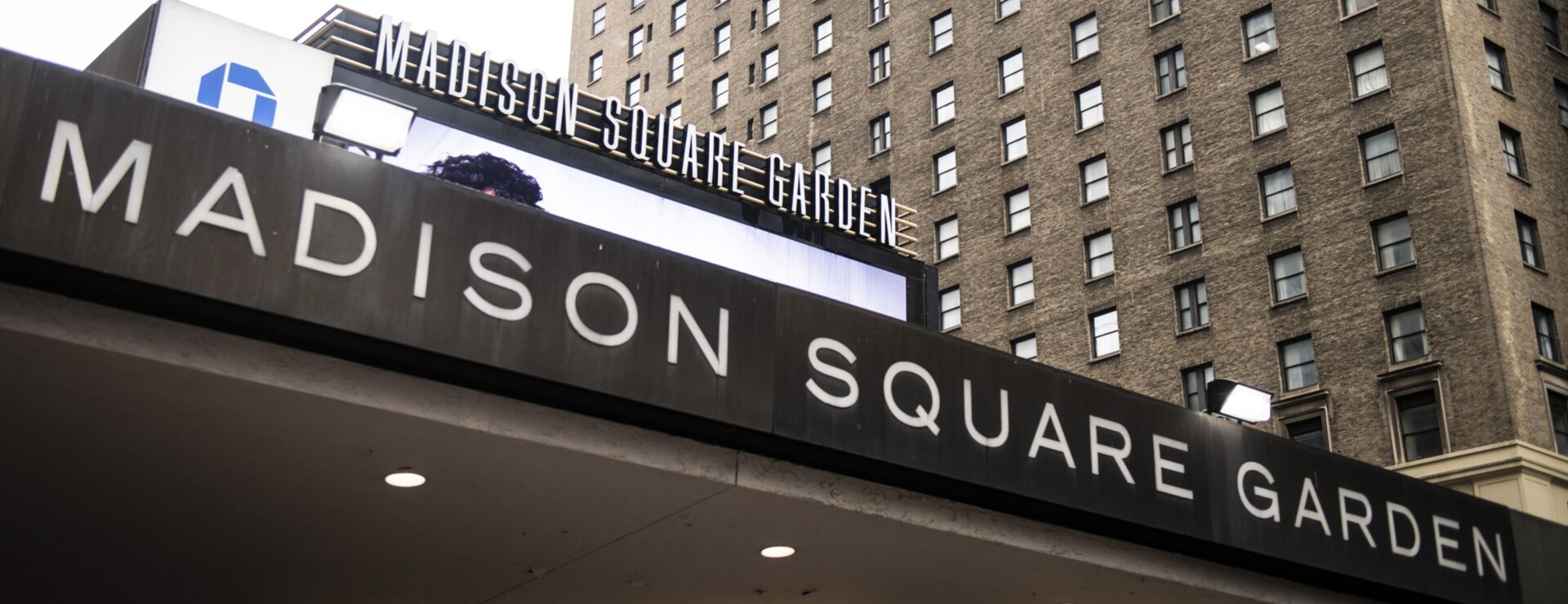The New York State Liquor Authority has the right to investigate Madison Square Garden Entertainment Corp. and revoke its liquor license in light of a policy banning so-called adverse attorneys from its three venues in New York City.
MSG can challenge the state’s decision only after the ongoing administrative hearing process plays out in full, a panel of judges from the New York Supreme Court 1st Appellate Department said Tuesday in a unanimous opinion.
The judges rejected MSG’s argument that the state lacks authority to revoke the company’s on-premises liquor license since MSG is a private venue. They ruled the state liquor authority has the right to apply the “open to the general public” standard to Madison Square Garden, the Beacon Theater, and Radio City Music Hall.
“Given this exercise of its statutory authority, SLA has not acted in excess of jurisdiction by applying the ‘open to the general public’ standard, upheld by the Court of Appeals in a license revocation proceeding against a restaurant under the same Rule 53.1(d), to petitioners’ venues,” the court said.
The court did agree with MSG that the state didn’t have a right to issue a subpoena to Jeroen van Kwawegen, an attorney at Bernstein Litowitz who’s representing a group of MSG stakeholders in two Delaware Chancery Court suits that challenge a July 2021 merger of MSG and MSG Networks Inc., the company that broadcasts games for the NBA’s New York Knicks. The Delaware cases are unrelated to the attorney ban in New York.
The subpoena, MSG said, sought deposition transcripts and exhibits that were “well beyond information” relevant to the liquor license authority’s review. MSG also said the subpoena “failed to state the circumstances or reasons disclosure was sought.”
The lower court should’ve granted MSG’s request to quash the subpoena since at the time it was served that was no administrative proceeding pending, and no scheduled hearing where testimony was needed, the appellate judges said. It also violated New York discovery law because it only gave van Kwawegen four days to produce the requested documents.
“Although SLA was authorized to ‘engage in the investigation,’ we find that it did not have statutory authority to ‘issue the subpoena’ when it was served,” the court said.
The decision was handed down by Associate Justices Jeffrey Oing, Ellen Gesmer, Manuel Mendez, and Martin Shulman.
“Today’s decision will not deter us from fighting an administrative agency that has run amok,” a spokesperson for MSG told Bloomberg. “The SLA has been trampling over small businesses for decades, including through systemic corruption. No business—large or small—should have to endure these abuses.”
Adverse Attorney Ban
The state wants to revoke MSG’s license in light of the company’s policy that bans from its venues any lawyers who are actively involved in litigation against MSG.
The so-called adverse attorney policy is at the center of MSG’s lawsuit against the New York State Liquor Authority, which threatened to revoke MSG’s liquor license saying that the ban on certain lawyers means that MSG is no longer generally open to the public and violates New York’s Alcoholic Beverage Control Law.
“Today it’s attorneys. Tomorrow it’s judges. The next day it’s going to be police officers. The next day it’s going to be firefighters,” New York Supreme Court 1st Appellate Department Associate Justice Jeffrey Oing said during oral arguments Oct. 31, in response to MSG’s argument that the policy only applies to 0.8% of New York lawyers, for a total of a few hundred affected people.
The state began investigating MSG in November 2022 after receiving complaints that the company was using facial-recognition technology to bar so-called adverse attorneys from its venues.
In March, the lower court dismissed MSG’s case, saying it’s too soon to review the issue in court given that it’s not yet been reviewed by an administrative law judge.
MSG’s facial-recognition technology also is the focus of a federal lawsuit that alleges MSG, in violation of New York law, profited from biometric information it collected from venue visitors.
The state liquor authority did not respond to a request for comment. MSG is represented by King & Spalding.
The case is Madison Square Garden Ent. Corp. v. N.Y. State Liquor Auth., N.Y. App. Div., 1st Dep’t, No. 2023-02125, decision 11/28/23.
